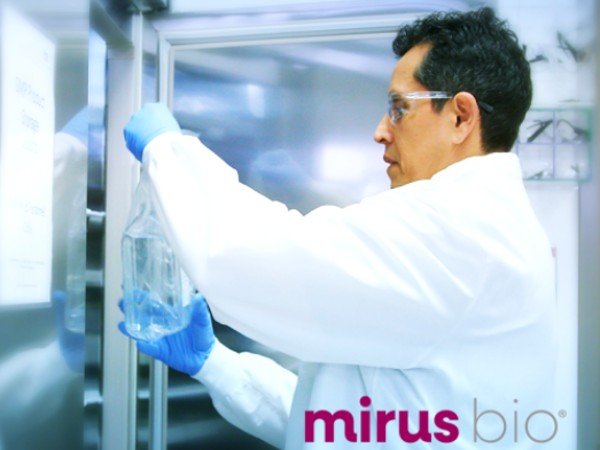 Viral vector-based cell therapy uses modified viruses to deliver a healthy gene into a cell to treat a disease. The virus’ shell delivers the gene and the vectors, with the genetic information they carry, can directly target the cause of a disease and change the way a cell functions. These therapies can be used to treat metabolic, ophthalmological, and neurological diseases, among many others.
Viral vector-based cell therapy uses modified viruses to deliver a healthy gene into a cell to treat a disease. The virus’ shell delivers the gene and the vectors, with the genetic information they carry, can directly target the cause of a disease and change the way a cell functions. These therapies can be used to treat metabolic, ophthalmological, and neurological diseases, among many others.
Global life sciences company Merck wants to be the company that shapes the future of gene therapies, while also providing a fully integrated and comprehensive solution for viral vector manufacturing.
To accomplish that, it announced the signing of a definitive agreement to acquire Mirus Bio, a company that develops and manufactures products for life science research, for $600 million on Wednesday. The deal is anticipated to close in the third quarter of this year, and is subject to regulatory clearance and other customary closing conditions.
Mirus Bio is part of Gamma Biosciences, a Madison, Wisconsin-based a life science company that specializes in the development and commercialization of transfection reagents, such as TransIT-VirusGEN, which play a critical role in the production of viral vector-based gene therapies.
The company has over 40,000 user in both the biopharmaceutical and research industries, has been published in over 10,000 peer-reviewed publications, and has over 1,200 cell lines in which products have been used, along with 56 U.S. and international patents granted
Founded in 1668, Merck operates across life science, healthcare and electronics with around 63,000 employees worldwide. The company provides products and services that accelerate drug development and manufacturing, while also discovering new ways to treat the most challenging diseases, and also enabling the intelligence of devices. In 2023, the company generated sales of €21 billion in 65 countries.
When it comes specifically to viral vector manufacturing, Merck’s Process Solutions business provides solutions to advance cell and gene therapies from preclinical through commercial production. This portfolio includes cell lines, cell culture media, processing chemicals and buffers, enzymes, as well as systems, filters, hardware and consumables, which support every step of the viral vector manufacturing processes.
Merck’s portfolio covers a variety of viral vector types, including adeno-associated virus, lentivirus, and adenovirus. Additionally, Merck’s Life Science Services business offers both contract testing services and a suite of comprehensive CDMO services for viral vector manufacturing.
“Viral vector-based cell and gene therapies have demonstrated their potential with more than 20 approvals over the last 10 years and will continue to advance, with a projected growth of 30 percent until 2028,” Matthias Heinzel, Member of the Executive Board of Merck and CEO Life Science, said in a statement.
“This acquisition, combined with our comprehensive portfolio, enables us to provide a truly differentiated and integrated offering to meet the growing demand for these life-saving therapies.”
For Mirus Bio, being acquired by Merck will expand its reach as well as its resources to develop its own portfolio.
“We have been driving innovation in nucleic acid delivery for two decades,” said Dale Gordon, CEO of Mirus Bio, in a statement.
“Merck’s broad portfolio, scale and global reach, combined with our leading transfection reagents, will help take our business to even greater heights and allow us to serve more customers, and ultimately patients, worldwide.”
Vator CEO Bambi Francisco recently conducted a podcast with Geoff Schwartz, Chief Operating Officer at Mirus Bio, along with On the VatorNews podcast, Bambi Francisco talks to Mark Aurousseau, co-founder and Chief Scientific Officer at eNUVIO, a company that creates devices, essentially fancy petri dishes, which can simulate the body.
You can listen to the conversation below:
(Image source: mirusbio.com)

















